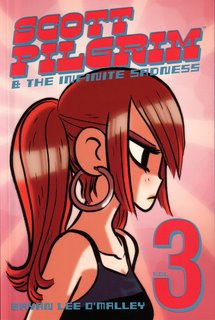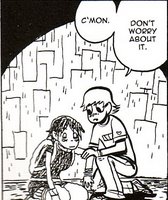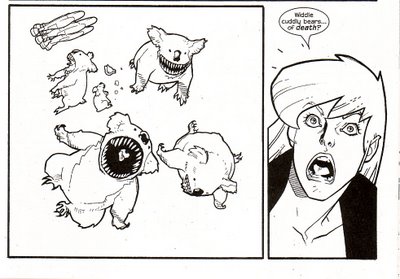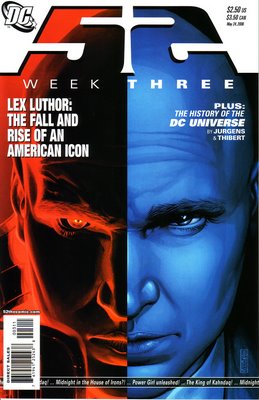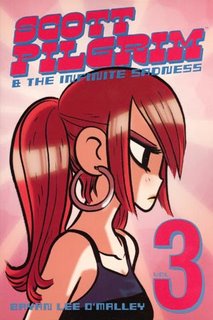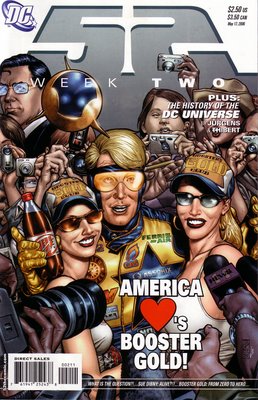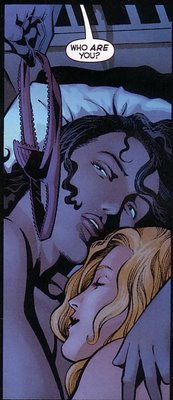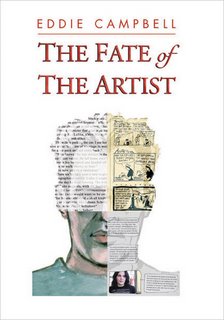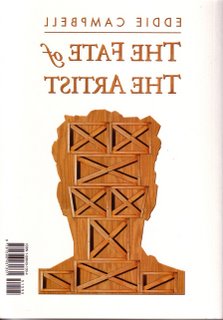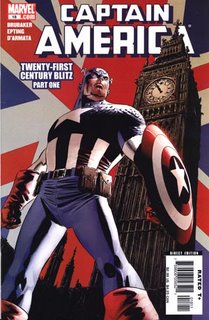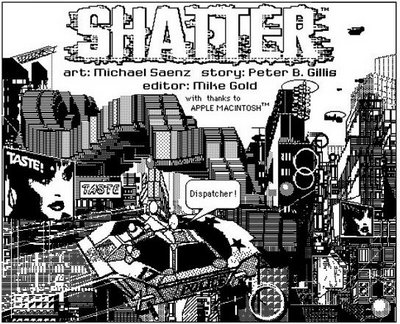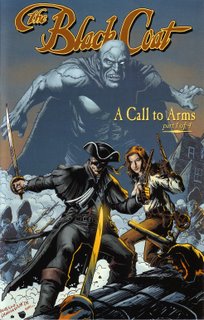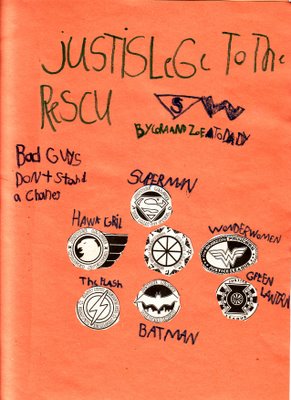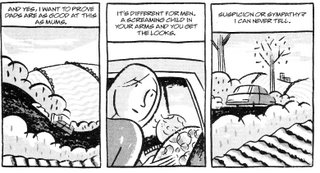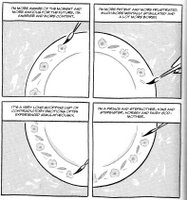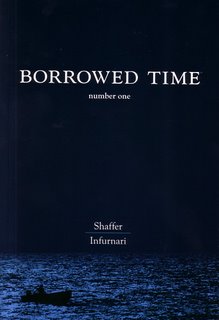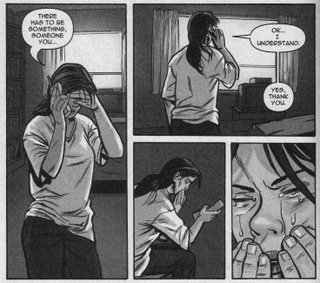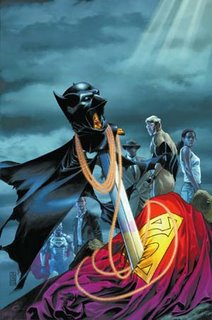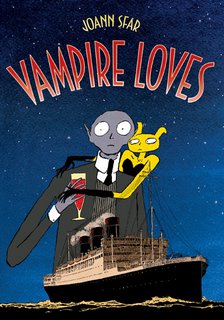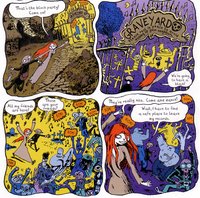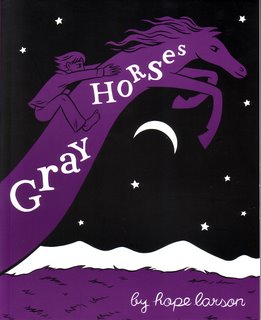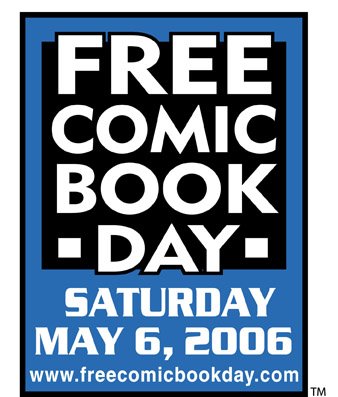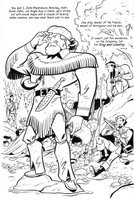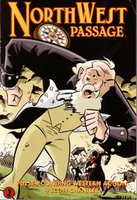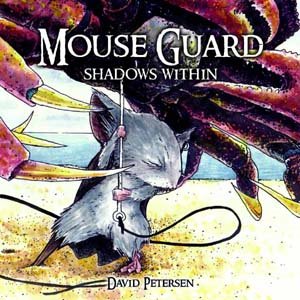I don't do capsule reviews often. I don't read a lot of horror comics. In an unholy union, these things now merge into a shambling, gibbering beast whose mere existence drives men mad.*
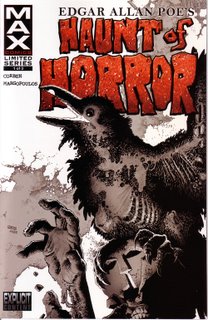
I really love the intent of
Haunt Of Horror: Edgar Allan Poe. For all Marvel's superhero myopia, here is a black-and-white book that celebrates the poetry of
Edgar Allan Poe including reprinting the complete text of the poems themselves. Probably the idea that kids across the nation will pick up a Marvel comic and suddenly become fans of 19th Century poetry is a bit off-base, but it certainly can't hurt. Richard Corben is a legendary illustrator, and his passion of Poe comes across in spades here: he's obviously deeply committed to the material, and wants to pay homage to Poe's macabre vision.
Intent aside, it's the
execution that hits some problems in this adaptation of three of Poe's poems. In particular, "The Raven" drove me to distraction with it's translation of good poetry into bad prose. The idea here is to tell the story of the poem, but instead of using the actual text of the poem, there's badly written prosification. Instead of
Once upon a midnight dreary, while I pondered, weak and weary,
Over many a quaint and curious volume of forgotten lore,
While I nodded, nearly napping, suddenly there came a tapping,
As of some one gently rapping, rapping at my chamber door.
... we get ...
It was cold and lonely. I tried to remedy my boredom by examining Lenore's library of old books. But I couldn't concentrate for more than a sentence or two. My nervous energy finally dissipated and I slumped in my chair. I barely sensed a distant vague tickling - a tapping.
I can't understand the decisions to hew
thatclose to Poe, yet not use the actual verse. It's not gaining in readability or accessibility, and only serves to alienate the reader more: this has all the difficulty, but none of the grace. The further away the adaptations get from Poe himself, the better they become - the sci-fi tale of "The Conqueror Worm" is only vaguely inspired by the poem, but manages to find a life of it's own. Hopefully, the rest of the miniseries follows that lead, instead of the imbalance of "The Raven".
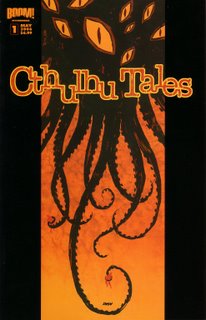
Boom! Studios'
Cthulhu Tales sticks with the "inspired by" approach throughout, and while there are some misfires, there are also some successes that not only give off the true Lovecraftian vibe, but extend it into new genres. "The Beach" really hits the creepy nail on its creepy head, with art that heightens the organic revulsion that permeates Lovecraft. He was a man the fundamentally distrusted the body, and Andrew Ritchie's art captures that sense or flesh run amok. Andrew Cosby and Lee Carter's "Witch Hunter" is also a fascinating piece that is one of the few times I've seen the Cthulhu mythos successfully transfer itself to the action genre - Lovecraft is about tragedy and endings, so it's difficult to make it work in a serial setting.
It's rare I'll mention lettering, but a strange decision here really robs some of the best stories in the collection of their punch. The first two stories are pure narration, and the third starts off the same way. Unfortunately, the same white-on-yellow caption box is used for narration on all three stories. Not only does this mean that the "voices" of these three different narrators all blend together, but it literally becomes difficult to make sure that one story has ended, and another begun. Not every story uses the same captions, though, so it doesn't become a
unifying device ... just a
confusing one.

It's probably less "horror" than "suspense" but another new title from Boom! also makes this roundup:
Talent. This is the latest in a trend that seems to be sweeping through comics: comics as television. Like
Borrowed Time and even
Elk's Run,
Talent feels inspired by
Lost and
24 and other hit shows that rely on heavy serial plotting. It's a fascinating premise, but it falls prey to the same problem that plagues many of these sorts of titles: the first issue doesn't tell us much more than
Previews did. If you know the high-concept setup of
Talent through solicitations or advance press, there's not much in this first issue. The situation is set up nicely, but since I already know what's happening, I spent the first issue waiting for the story to move past that. The rest of the series could really take off from here, but this first issue suffered from simple internet overexposure. I'm not sure what the solution is ... but when dealing with smaller press books, it's not a great leap to imagine that a lot of your readers are coming in having read something in advance ... so how do you satisfy them, while also including the audience coming in from the cold?
*OK. Need to cut back on the Lovecraft, obviously.

